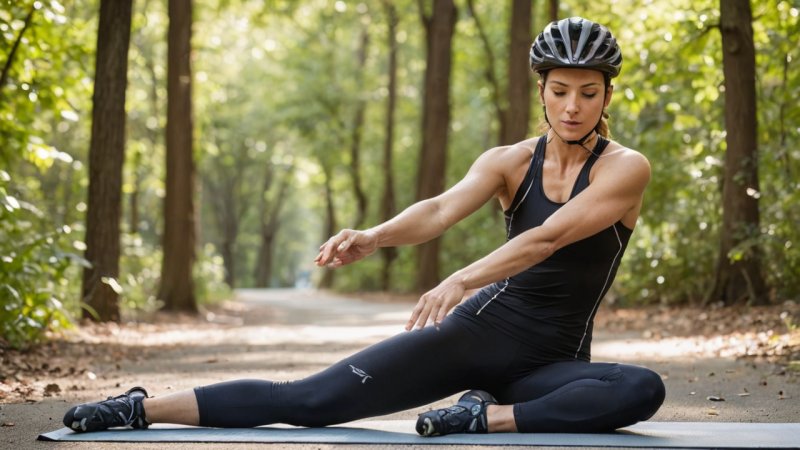Introduction
Cycling is an exhilarating sport that combines endurance, strength, and technique. However, to enhance your cycling performance while ensuring your safety, incorporating a proper stretching routine is essential. In this guide, you will learn about the importance of stretching for cyclists and follow a step-by-step approach to integrate effective stretching techniques into your routine.
Step 1: Understand the Importance of Stretching
Before diving into specific stretches, it’s crucial to understand why stretching is beneficial for cyclists. Stretching helps to:
- Improve Flexibility: Increased flexibility can enhance your pedal stroke efficiency.
- Reduce Injury Risk: Proper stretching can prevent muscle strains and joint injuries.
- Enhance Recovery: Stretching aids in muscle recovery post-ride, reducing soreness.
Step 2: Pre-Ride Stretching Routine
Warming up your muscles before cycling is key to preventing injuries. Here are some effective pre-ride stretches:
- Leg Swings:
- Stand next to a wall for support.
- Swing one leg forward and backward, keeping your torso upright.
- Perform 10 swings on each leg.
- Quadriceps Stretch:
- Stand on one leg and pull your other heel towards your glutes.
- Hold for 15-30 seconds and switch legs.
- Dynamic Hip Flexor Stretch:
- Step forward into a lunge position.
- Lower your hips gently and hold for a few seconds.
- Alternate legs for 5-10 repetitions.
Step 3: Post-Ride Stretching Routine
After your ride, cooling down and stretching can help alleviate muscle tension. Here are some effective post-ride stretches:
- Hamstring Stretch:
- Sit on the ground with one leg extended and the other bent.
- Reach towards your toes on the extended leg, holding for 15-30 seconds.
- Calf Stretch:
- Stand facing a wall, place one foot behind the other.
- Keep your back leg straight and press your heel into the ground.
- Hold for 15-30 seconds, then switch legs.
- Shoulder Stretch:
- Bring one arm across your body and hold it with the opposite arm.
- Hold for 15-30 seconds, then switch sides.
Step 4: Incorporate Stretching into Your Routine
To make stretching a habit, consider the following tips:
- Set a Schedule: Dedicate specific times before and after your rides for stretching.
- Stay Consistent: Consistency is key to improving flexibility and performance.
- Listen to Your Body: Modify stretches based on how you feel to avoid overstretching.
Step 5: Monitor Your Progress
As you incorporate stretching into your routine, keep track of your progress:
- Flexibility Tests: Regularly test your flexibility to see improvements.
- Performance Metrics: Note any changes in your cycling performance and recovery times.
- Adjust as Needed: Modify your stretching routine based on your progress and goals.
Summary
Incorporating a stretching routine into your cycling regimen can significantly enhance your performance and safety. By understanding the importance of stretching, establishing pre- and post-ride routines, and monitoring your progress, you can enjoy a more effective and injury-free cycling experience. Remember to stay consistent and listen to your body as you work towards improving your flexibility and performance.






